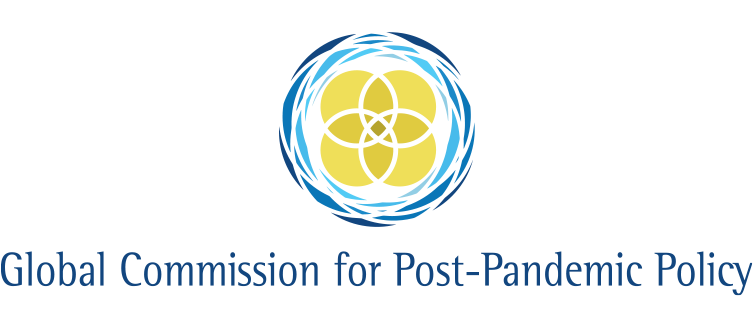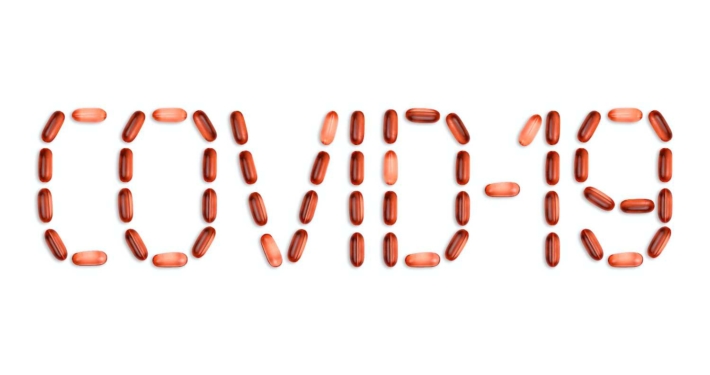The Pandemic, week to May 21st
Countries across the globe had administered a total of 1.5 billion doses of COVID-19 vaccines, as of May 17th. If the current rate of 30 million doses per day, at an assumed two doses per person, can be maintained, it would take about 300 more days to achieve the estimated total of 11 billion vaccines needed worldwide to reach the 70%-of-adults threshold thought likely to provide herd immunity.
While global infections have been falling overall throughout May, case numbers are still rising in more than 30 countries, including in South America and the Caribbean, southern Africa and South and South-East Asia.
In Taiwan, authorities are scrambling to control an unprecedented spike in COVID infections. The prime example of a country that got the pandemic under control quickly, Taiwan has now recorded over 1,000 new cases in the last week, well over a third of Taiwan’s total cases since the pandemic began. Until now most cases came from travellers, but 63 domestic cases recorded on May 20th could not be connected to existing infections. The pandemic alert level has been raised, with the banning of indoor gatherings of more than five people and outdoor gatherings of more than 10 people. Schools will also be shut for two weeks and many are working from home.
India remains in crisis, accounting for roughly one in three new deaths reported worldwide each day and overtaking the grim record for daily deaths previously held by the US, with 4,529 fatalities officially counted on May 19th. While India’s megacities are seeing a fall in the number of COVID cases, the virus is thought to now be spreading in the countryside, where both testing and healthcare are more limited. Cyclone Tauktae, the most powerful storm to hit India’s western states in two decades, has made efforts to prevent infections more difficult, with 200,000 people evacuated from Gujarat’s western districts into temporary shelters.
Meanwhile India’s crisis will have severe knock-on effects for the 2 billion vaccine doses pledged to low-income countries under the COVAX programme. Its largest contracted supplier the Serum Institute of India (SSI) revealed it was unlikely to recommence exporting vaccines from India until the end of the year. SSI is already more than 140 million doses behind in its export schedule and this new announcement suggests COVAX’s 2 billion target for 2021 will be extremely hard to reach.
The UN Security Council has called for accelerated access to coronavirus vaccines for Africa. The continent of over a billion people has so far received just 2% of the shots administered globally. Meanwhile reports show a third wave of the pandemic has arrived in South Africa’s northwestern states and President Cyril Ramaphosa has suggested lockdown restrictions could be tightened. A report into excess deaths over the past year by the South African Medical Research Council has shown that the country’s true COVID mortality count could be more than double the official tally of 55,000.
In South America, Argentina has been badly hit by a second devastating wave of infections, with both the Brazilian and UK variants spreading widely in the country. The nation of 45 million is now third in daily cases after India and Brazil, and fourth in cumulated COVID deaths after India, Brazil and the US. In Colombia, hospitals are struggling and rapidly running out of ICUs. Trinidad and Tobago has declared a state of emergency as infections spike on the Caribbean islands.
In Europe, countries are relaxing social restrictions, although an India-originating variant which has spread in 26 European countries is causing concern. Outdoor dining has recently reopened to scenes of rejoicing in Poland, France and the Czech Republic, while the UK is now permitting indoor dining, and Italy has moved its nighttime curfew later to 11pm. However, the spread of the Indian variant in the UK, which has now identified almost 3,000 cases, has prompted local “surge” testing and put in doubt further relaxations in June. The WHO says that vaccines are currently working well against the variant.
In Canada, those seeking a jab now have options across the border. Ottawa has relaxed quarantine rules for Canadians travelling to get their jabs in neighbouring US states awash with vaccines.
Economy
The EU has agreed to reopen its borders to tourists and other non-essential visitors who have been fully vaccinated or come from a country considered a low pandemic risk. In Greece, where tourism accounts for a fifth of the economy, authorities eagerly launched the tourist season, announcing they are “putting the lockdown behind us” and “opening our tourist industry to the world”. Spain’s government also anticipates the return of British and other tourists within weeks, while Italy plans to waive quarantining restrictions even for those with just one vaccine dose. The UK meanwhile is discouraging non-essential travel to all EU countries except Portugal.
Britain’s consumer price index rose by 1.5% in April, a sharp jump from a 0.7% rise in March, signaling likely further price hikes this year as economies reopen, although the Bank of England joins other major central banks in believing that faster inflation in the UK, the US and euro area is occurring for temporary reasons. The Bank of England, the Federal Reserve and the European Central Bank have all vowed to maintain their expansionary monetary policies.
Singapore is facing economic challenges as it records its highest rate of daily infections since September, prompting the country’s strictest coronavirus measures since last year’s lockdown and forcing the cancellation of two major international events in the city-state, the annual Shangri-La Dialogue on Asia-Pacific security in June and a special World Economic Forum event planned for August. Singapore’s Straits Times Index saw its sharpest daily fall in 11 months, with drops led by firms exposed to retail and travel. Meanwhile, representatives from the construction industry are urging a relaxation of restrictions on foreign workers entering Singapore, as COVID controls continue to cause manpower constraints.
Japan’s economy shrank at an annual rate of 5.1% in January-March, hit by a drop in spending caused by the fresh imposition of states of emergency in major cities and prefectures thanks to COVID spikes. Household consumption dropped at an annualized rate of 5.6%, while government spending declined 6.9%. Japan’s vaccination programme stands far behind those of other rich countries — currently Japan has administered at least one dose to less than 5% of its population – but on May 21st the country’s authorities at last gave approval to the Moderna and AstraZeneca vaccines, having previously approved only Pfizer/BioNTech. Tensions continue around the Tokyo Olympic Games, scheduled to begin in late July. A survey of the Japanese public found 83% of those polled did not want to hold the games this summer.
An acute global shortage in semiconductor microchips, used in everything from laptops and games consoles to washing machines and cars, continues to cause supply-chain disruptions and to affect profit forecasts. The latest impact is on network gear manufacturer Cisco Systems, which forecasted profits below estimates due to such disruptions. The chip shortage has been caused by the pandemic increasing demand for computing products and slowing production, as well as a higher than expected demand for new cars. The automotive industry is also suffering, with delayed delivery in some cases causing production suspensions.
Politics
US-China geopolitical rivalry manifested itself in the form of “vaccine diplomacy” this week. China boasted that it was sending vaccines to nearly 40 African countries, with the director of the foreign ministry’s Africa department using the opportunity to make an apparent dig at the US, accusing “some countries that have said they have to wait for their own people to finish the vaccination before they could supply the vaccines to foreign countries.” Earlier in the week, President Joe Biden pledged 20 million of the Pfizer-BioNTech, Moderna and Johnson & Johnson vaccines to be sent abroad by the end of June. This is in addition to 60 million AstraZeneca doses to be sent once the vaccine is cleared by the US regulator, the Food and Drug Administration. On May 21st, the EU joined in, pledging to donate 100 million vaccine doses by year-end.
In Gaza, violence between Hamas and the Israeli government has had a devastating impact on the local healthcare system, hampering the fight against COVID-19 in the densely populated territory of 2 million people. The added pressure of casualties from the fighting has resulted in nearly half of all essential drugs running out and Gaza’s slow COVID vaccination programme halted entirely.
The UK announced it will host a Global Vaccine Confidence Summit on June 2, gathering an international group of government officials, scientists and academics to focus on misinformation around coronavirus vaccines and how to build global confidence in their use. The UK’s rapid vaccine rollout has benefited from relatively high levels of uptake among the population, but other countries such as the US and Israel are already encountering substantial issues with vaccine hesitancy. In the US, Ohio instigated a $1 million lottery to encourage vaccine take-up — the initiative resulted in a 6% increase in vaccinations and the highest vaccination day in three weeks, and New York has now followed suit.
In Tanzania, the new president, Samia Suluhu Hassan, has issued a range of recommendations in an attempt to curb a looming third wave of coronavirus infections. These include restrictions, procurement of vaccines and a rollout to frontline healthcare workers and vulnerable adults, plus a public information campaign on the virus. Before he died in March, Suluhu’s predecessor John Magufuli — whom some suspect had contracted COVID — repeatedly dismissed the seriousness of the pandemic and urged citizens to “pray coronavirus away”. He also declined to join the vaccine-sharing initiative COVAX, despite Tanzania qualifying, which the new president says she will now seek to join.
Photo by Markus Spiske on Unsplash
GCPPP Newsletter
We now publish a weekly newsletter to inform friends and supporters of the Global Commission’s progress and to provide updates when new content is published. Please sign up here:


 Volodymyr Hryshchenko, Unsplash
Volodymyr Hryshchenko, Unsplash
 Adam Nieścioruk, Unsplash
Adam Nieścioruk, Unsplash
 visuals, Unsplash
visuals, Unsplash


